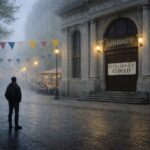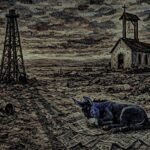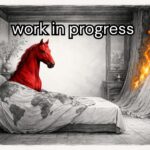“Elected officials must serve the greater good no matter what it takes, like a father protecting and disciplining his family”. (Provincial Governor in Davao from 1959 to 1965, Vicente Duterte).
A small and harmless sparrow, the Red Maya, was, up to 1995, the national symbol of the Philippines. However, the popular president then, Fidel V. Ramos, felt he needed a more potent symbol to raise national self-esteem. He was a liberal democrat who included Muslims in his successful projects for economic growth and social justice. He wanted to reintroduce the death penalty against stiff resistance. He took very confrontational action against the Chinese leaders in a territorial dispute that almost led to war in the Far East. He needed something more substantial than a sparrow and chose a predator, the monkey-eating eagle of Mindanao, as the new national symbol.
When this happened (1995), Rodrigo Duterte was in the middle of his second term as Mayor of Davao City. He was the son of a former Provincial Governor, Vicente Duterte, and was known as a fearless leader ready to take bullets for his mission to make Davao a safe place.
But the system of justice has often been a hindrance, especially for the common man, so Duterte with his direct and vernacular language and a deeply felt understanding of the people he served must at one point in his life decided to do the opposite of what the Major in the “Dirty Harry” movies did. The one who practices the law the correct way to serve himself and with all his power tries to stop the Clint Eastwood character from creating justice in his way.
In Davao, it seems that the roles of the Mayor and Dirty Harry have merged, and the result is amazing. Davao has transformed from being the “Killing Capital” of the Philippines to becoming one of the safest cities in the world. This process would have taken a very long time within the existing law system, and maybe never succeeded. Most people in the Philippines seem to agree with that.
There is no lack of protests against Duterte’s way of ruling his city. He is accused of being a cold-blooded murderer by human rights organizations and others with Western ideals of mercy as a foundation for building civilization. But Duterte also seems to share many of these ideals; he is like the former President Ramos, a complex person and a warrior with a social profile and care for his people. When it comes to petty crimes, drug dealing, and other criminal offenses, there is no mercy at all.
Duterte’s uncompromising style appears very appealing to most people here, and I can understand that. He has just performed what most of the Filipinos I have met are saying openly: I’m willing to kill if someone hurts my family badly. With his fearless personality, this clan mentality is firm, and Duterte seems to be the strong man many are waiting for to lift the nation from a swamp of inability and corruption.
So far, he has brutally rejected all attempts to convince him to run for president in 2016. Some weeks ago, former president Ramos visited Duterte in Davao, and the speculation now is if the eagle will take off for Manila with his father’s exhortation; “Elected officials must serve the greater good no matter what it takes, like a father protecting and disciplining his family.”
Image by Eldar Einarson







3 responses to “The Shadow of an Eagle”
[…] mayor named Rodrigo Duterte tried to regain control of the violence. He did so based on a motto inherited from his father: “Elected officials must serve the greater good, no matter what it […]
[…] His popularity in Davao paved the way for the presidency in 2016. By then, the Philippines had undergone significant political shifts. During my visit in May 1992, Fidel V. Ramos was elected President after Corazon Aquino, who had led the country since 1986. She came to power after the People Power Revolution that overthrew the dictator Ferdinand Marcos, the father of the current President. She was the Philippines’ first female President and played a central role in restoring democracy after the Marcos regime. Ramos had been a key supporter during this transition, particularly as military leader and chief of defense. He would later become an important behind-the-scenes supporter of Duterte’s rise to national power, something I wrote about in my 2014 article, The Shadow of an Eagle. […]
[…] Philippines? My Norwegian husband knows the Philippines well and he wrote an article about Duterte, “The Shadow of an Eagle” for this blog in November 2014. I have asked him to answer some questions to help clarify the […]